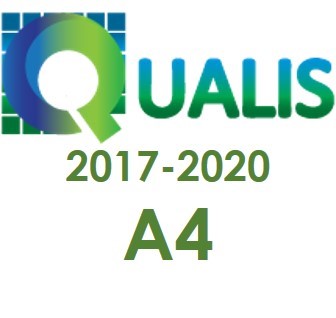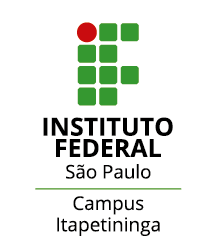Teacher´s conceptions about traditional learning environments and innovative learning environments
Keywords:
Innovative Learning Environments. Teachers’ Conceptions. Traditional Learning Environments.Abstract
This work presents an analysis of teachers’ conceptions about traditional learning environments and innovative learning environments. On this qualitative and exploratory research participated 12 teachers that were coursing the curricular unit named Innovative Learning Environments of a Master degree. It were analysed the teachers’ productions about the characteristics of traditional learning environments and innovative learning environments. The content analysis emerged and organized teachers’ conceptions about their role and students’ role, content knowledge, pedagogical content knowledge, educational resources and space organization.
Downloads
References
ALTERATOR, Scott; DEED, Craig. Teacher adaptation to open learning spaces. Issues in Educational Research, v. 23, n. 3, p. 315-330, 2013.
AMADO, João; COSTA, António; CRUSOÉ, Nilma. A técnica de análise de conteúdo. In: AMADO, João. (Coord.). Manual de investigação qualitativa em educação. Coimbra: Imprensa da Universidade de Coimbra, 2013, p. 301-351.
BAETA, Patrícia; PEDRO, Neuza. Salas de Aula do Futuro: análise das atividades educativas desenvolvidas por professores e alunos. Indagatio Didactica, Aveiro, v. 10, n. 3, p. 81-95. 2018.
BARROS, Rita; MONTEIRO, Angélica; FIGUEIROA, Alcina. Ambientes Educativos Inovadores e competências para o século XXI: reflexões finais. In: FIGUEIROA, Alcina; MONTEIRO, Angélica. (Org.). Ambientes educativos inovadores e competências dos professores para o século XXI. Santo Tirso: Whitebooks, 2018, p. 59-61.
BOGDAN, Robert; BIKLEN, Sari. Investigação qualitativa em educação: Uma introdução à teoria e aos métodos. 2. ed. Porto: Porto Editora, 2013.
BROOKS, Christopher. Space matters: The impact of formal learning environments on student learning. British Journal of Educational Technology, v. 42, n. 5, p. 719-726, 2011.
BYERS, Terry; IMMS, Wesley. Solution? Evolution? Or Revolution? Learning Spaces, Teaching Times, Birmingham, v. 3, n. 3, p. 50-58, 2017.
CHARTERIS, Jennifer; SMARDON, Dianne; NELSON, Emily. Innovative learning environments and new materialism: A conjunctural analysis of pedagogic spaces. Educational Philosophy and Theory, v. 49, n. 8, p. 808-821, 2017.
CAMPBELL, Louise. Teaching in an Inspiring Learning Space: an investigation of the extentto which one school’s innovative learning environment has impacte don teachers’ pedagogy and practice. Research Papers in Education, v. 35, n. 2, p. 185-204, 2020.
CAMPBELL, Matthew; SALTMARSH, Sue; CHAPMAN, Amy; DREW, Christopher. Issues of teacher profesional learning within Non-Traditional Classroom Environments. Improving Schools, v. 16, n. 3, p. 209-222, 2013.
CAVADAS, Bento; CORREIA, Marisa. Teachers' Conceptions about Innovative Learning Environments. In: 2019 International Symposium on Computers in Education (SIIE), 2019, Tomar. Proceedings [...]. Tomar, Portugal: IEEE, 2019, p. 1-6, doi: 10.1109/SIIE48397.2019.8970115.
CORREIA, Marisa.; CAVADAS, Bento. As implicações dos ambientes educativos inovadores para as práticas dos professores. Revista de Investigación Educativa Universitaria, Vigo, v. 2, n. 3, p. 143-159, 2019.
DIESEL, Daniela; MATOS, João Filipe. Espaços educativos inovadores e o olhar dos professores para a ação docente. Revista Educação e Cultura Contemporânea, Rio de Janeiro, v. 16, n. 43, p. 375-395, 2019.
FIGUEIROA, Alcina; MONTEIRO, Angélica. Ambientes educativos inovadores e competências dos professores para o século XXI. Santo Tirso: Whitebooks, 2018.
FLICK, Uwe. Métodos qualitativos na investigação científica. Lisboa: Monitor, 2005.
LICHTMAN, Marilyn. Qualitative research in education: A user's guide. 3. ed. Thousand Oaks, CA: Sage Publications, 2013.
LIM, Fei; O’HALLORAN, Kay; PODLASOV, Alexey. Spatial pedagogy: mapping meanings in the use of classroom space. Cambridge Journal of Education, v. 42, n. 2, p. 235-251, 2012.
MAHAT, Marian; BRADBEER, Chris; BYERS, Terry; IMMS, Wesley. Innovative Learning Environments and Teacher Change: Defining key concepts. Melbourne: University of Melbourne, LEaRN, 2018.
MERRIAM, Sharan; TISDELL, Elizabeth. Qualitative research. A guide to design and implementation. 4. ed. San Francisco, CA: Jossey Bass, 2015.
MERRIËNBOER, Jeroen; MCKENNEY, Susana; CULLINAN, Dominic; HEUER, Jos. Aligning pedagogy with physical learning spaces. European Journal of Education, v. 52, n. 3, p. 253–267, 2017.
MONTEIRO, Angélica; SILVA, Ângelo; BARROS, Rita. Apresentação do estudo sobre os ambientes educativos inovadores em Portugal. In: FIGUEIROA, Alcina; MONTEIRO, Angélica. (Orgs.). Ambientes educativos inovadores e ambientes de aprendizagem para o Século XXI. Santo Tirso: Whitebooks, 2018a, p. 41-58.
MONTEIRO, Angélica; FIGUEIROA, Alcina; COUTO, José; CAMPOS, Orquídea. Ambientes Educativos Inovadores em Portugal: Uma perspetiva. Saber & Educar, Porto, v. 25, p. 1-11, 2018b.
OECD (2017). The OECD Handbook for Innovative Learning Environments. Paris: OECD Publishing. Disponível em https://dx.doi.org/10.1787/9789264277274-en
QUIVY, Raymond; CAMPENHOUDT, Luc. Manual de investigação em ciências sociais. 6. ed. Lisboa: Gradiva, 2013.
SENRA, Clarice; BRAGA, Marco. Inovação disruptiva: Um olhar sobre os ambientes educativos inovadores. REnCiMa – Revista de Ensino de Ciências e de Matemática, v. 10, n. 4, p. 101-115, 2019.
VILELAS, José. Investigação. O processo de construção do conhecimento (2.ª ed.). Lisboa: Edições Sílabo, 2019.
Downloads
Published
Versions
- 2020-07-19 (2)
- 2020-07-17 (1)
How to Cite
Issue
Section
License
Copyright (c) 2020 Revista Internacional de Formação de Professores

This work is licensed under a Creative Commons Attribution-NonCommercial-NoDerivatives 4.0 International License.



 Este trabalho está licenciado sob uma licença
Este trabalho está licenciado sob uma licença 